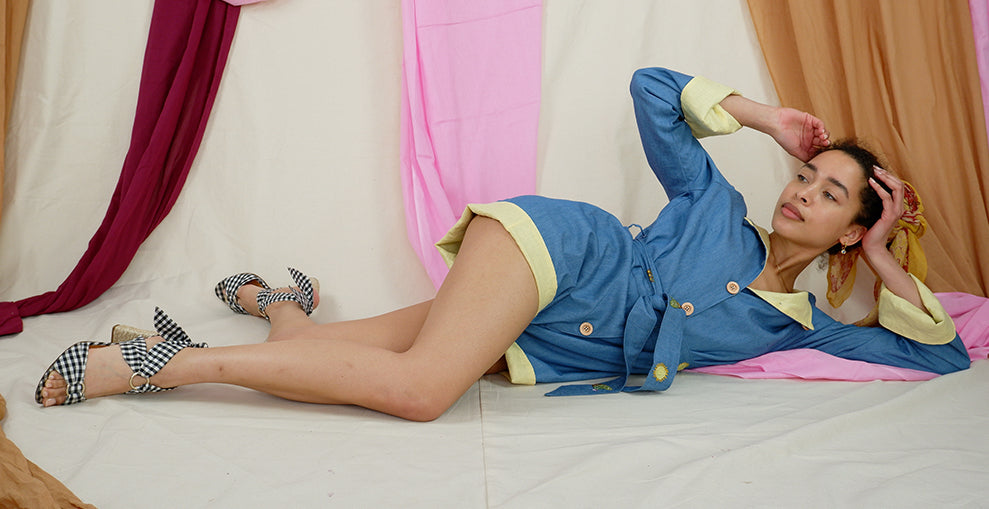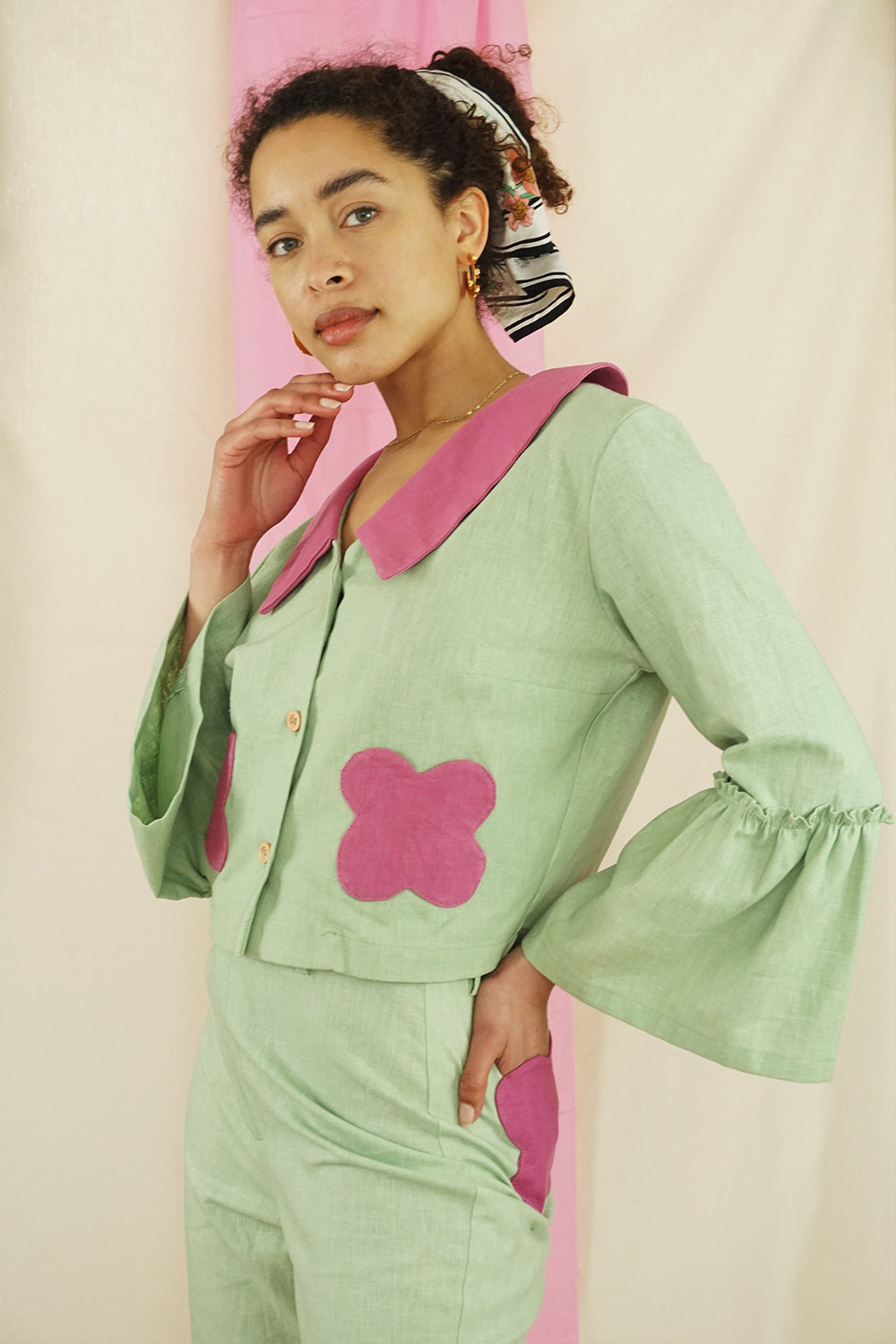The art of embroidery is deeply entwined in Mexico's history, dating back to as early as pre-Hispanic era.
Women wearing richly embroidered Tehuana clothing for the Feast of the Assumption in Santa María Reoloteca, Tehuantepec, Oaxaca state. Photograph by Chloë Sayer, 2004. © Chloë Sayer
The craft does not just create beautiful decorative art, it also unites the women artisans of Mexico together. There is a comfort in the act of embroidering, especially when done together - women sitting side by side from different generations, sharing stories and giving each other support.
Frida Kahlo in New York, by Nickolas Muray, 1939. © Nickolas Muray Photo Archives.
It carries Mexico's heritage, culture and tradition from the colours and motifs of the designs, to the techniques used. Many of the artisans had been taught by their mothers and grandmothers and will continue to pass it down for generations to come.
The income that their craft generates gives them financial independence and autonomy.
Bowl of embroidery threads, photo courtesy of Momtaz Begum-Hossain
We are lucky to have crossed paths with Beatriz in 2020. She is a hand-embroidery artisan based in Mexico City.
Beatriz is in her late 50s and has been doing embroidery all her life. She learnt this delicate art from her mother and has learnt a range of techniques through years of practise.
Hand embroidery techniques such as the french knots, stem stitch and woven wheel could never be replicated by a machine, which is what makes these pieces special.
She works meticulously and carefully creating beautiful designs from her home in the outskirts of Mexico City. She visits us with her daughter who helps her prepare the threads before embroidery.
The newer more modern embroideries design are more fluid - most of the time it's entirely unique to the artisan style. When asked, Beatriz says her designs are largely influenced by her feelings, she uses the art to express her own experiences, personality and stories.
🌞🌻🌵🧡
explore our embroidered pieces









